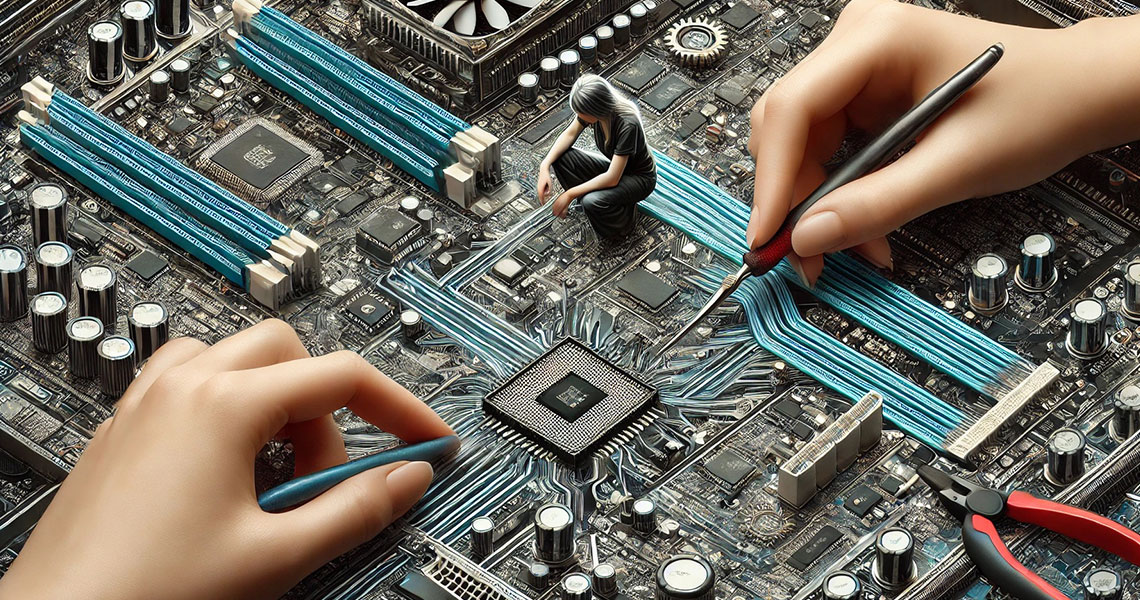The dichotomy of taking the road less travelled
By Tanuj Saraf & Abraham Thomas | 19 July 2024

Image credit: ChatGPT
The VC industry loves recurring revenue and the sound of a software startups’ account going cha-ching every month makes it quite appealing. Hardware on the other hand, has always been the dull cousin of software, when seen from a venture capital funding point of view.
Today, hardware is mostly used as a Trojan Horse to sell software. Some brand it as HaaS (Hardware as a Service) while the others a bit differently. Developing hardware is a long and difficult endeavour. Hardware development requires significant engineering expertise, ability to figure out the supply chain, has more points of failure, the gestation periods are longer, and the feedback loop is slower. Manufacturing, both onshore and offshore, is complicated and there are 10 additional challenges to deal with. So, it doesn’t come as a surprise that a majority of the founders want to build software startups rather than hardware ones.
The VC industry isn’t any different either. Only a handful of them have experience in building, selling, or investing in hardware, which makes it difficult for them to evaluate and provide feedback to founders. While there have been outliers, most VCs have not updated their views around hardware because it requires technical ability, time, patience, and inclination, to evaluate hardware startups in any meaningful way. In addition to that, hardware also requires specific skills and attributes such as domain expertise, supply chain and production management knowledge, among others, making it even tougher to evaluate them. So, VCs either pile on their existing thesis around SaaS, Content, E-commerce etc. or start evaluating hardware startups from the lens of a software investor. However, evaluating hardware start-ups using SaaS metrics is as good as measuring the capability of a fish by judging its ability to climb a tree.
Despite these challenges, both on the founders’ as well as the investors’ end, we believe that there lies great opportunities to build hardware start-ups. And yes, we’ve learnt this the hard way. By investing in and putting in the efforts to learn about the space. As many as 6 of the 17 investments we made from our growX fund I, were hardware first companies. CynLr, a DeepTech hardware start-up is revolutionizing vision for robots. While Pixxel, a DeepTech space start-up is revolutionising the satellite based hyperspectral imaging industry. Bellatrix, another space start-up, designs and develops thrusters for satellites (yes, literal rocket science), while LightSpeedAI Labs is building Lego-like Optoelectronic Processors and Interconnects for Data Centre and near-Edge computers.
Why does hardware make sense right now? Difficulty isn’t necessarily a bad thing!
Looking at hardware via the Merak lens
Hardware being difficult would work in a startups’ favour in the long-term because the barrier to entry is much higher in a hardware ecosystem than a purely software one.
As always, while there are multiple ways to look at things, here’s how we see hardware.
Over the past few years, we’ve all seen the meteoric rise of Tesla and NVIDIA. This suggests a fundamental shift in the market and its precipitation on hardware first companies. While the failure rate in hardware is still higher than software, it’s still a bet worth considering for both the founders and investors alike.
So, whether you’re a fund which would like to collaborate with us on deals, or a founder building in the hardware space who’d like to seek feedback or funding, reach out to us.